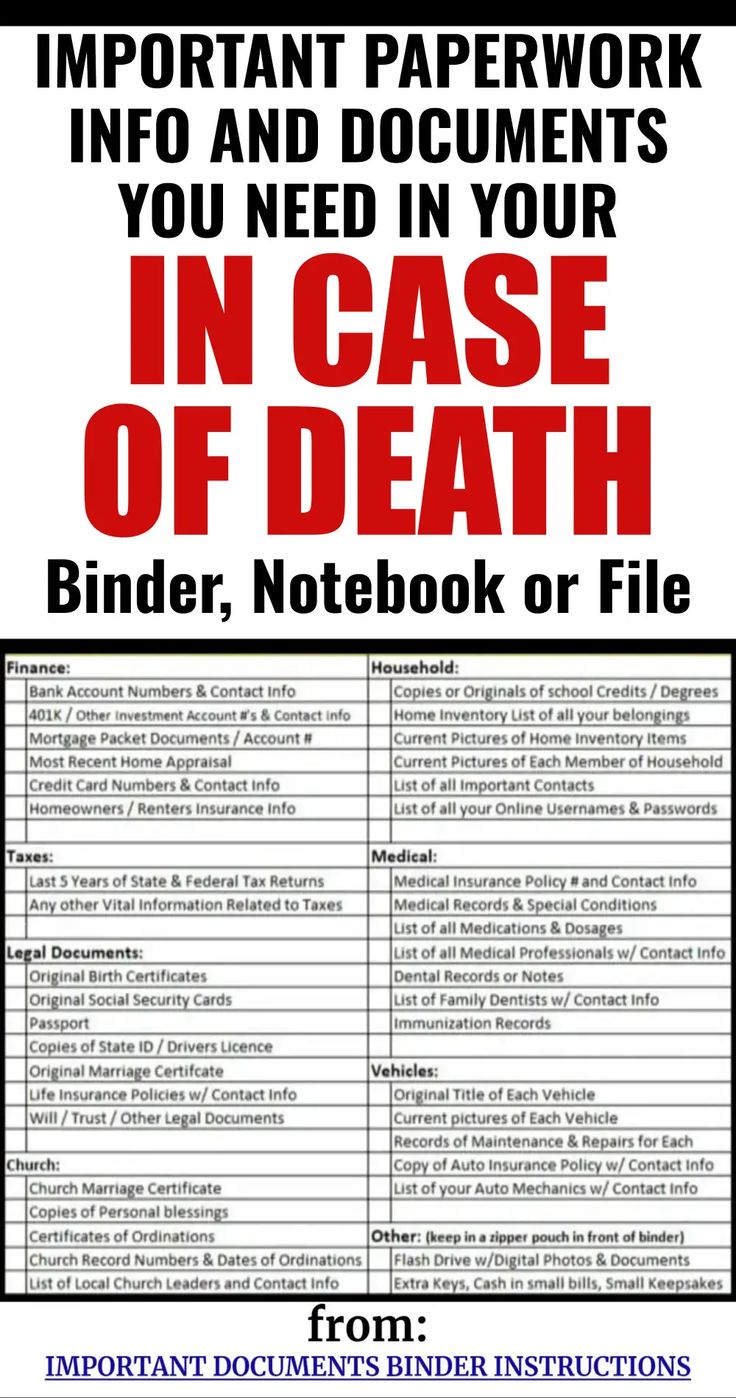Essential Paperwork for Car Insurance: A Checklist

The road to securing car insurance can feel like an obstacle course with paperwork scattered along the way. Whether you're insuring a car for the first time, switching providers, or addressing policy changes, there is an array of documents you need to have at your fingertips. Here's a checklist of essential paperwork that will keep you on the path to coverage without unnecessary detours.
Vehicle Information

Before diving into personal documentation, you must gather all necessary details regarding the vehicle you wish to insure:
- Vehicle Identification Number (VIN): This 17-character unique identifier is found on your vehicle's dashboard, registration, or insurance card.
- Year, Make, Model: The specifics of your car are crucial for rate calculation.
- License Plate: Both the number and the state are required.
- Odometer Reading: An accurate reading can influence your premium.
- Vehicle Title or Lease Agreement: Proof of ownership or lease agreement.
These details will ensure that the policy matches your vehicle precisely.
Personal Information

Now, turn your attention to the personal documents you'll need:
- Driver's License: A valid license for all potential drivers must be provided.
- Proof of Address: Utility bill, rental agreement, or any document showing where the vehicle will be garaged.
- Personal Information: Full name, DOB, contact info for policyholder and additional drivers.
💡 Note: If you're adding a young driver or someone with a checkered driving history, be prepared for additional questions and potential higher rates.
Current Insurance Details

If you're switching insurance companies or not a new driver, bring:
- Current Insurance Policy: Details of your current policy help the new insurer understand your coverage history.
- Claims History: Though often automatically retrieved, having your record at hand can expedite the process.
Coverage and Policy Options

While not documentation per se, having your preferred coverage options in mind will streamline the process:
- Desired coverage limits (liability, comprehensive, collision).
- Any additional coverage (e.g., rental car reimbursement, roadside assistance).
- Your desired deductible amounts.
- Premium payment preferences.
Additional Documentation for Specific Situations

Sometimes, you might need additional documents, depending on the situation:
| Situation | Additional Documentation |
|---|---|
| Leased or Financed Car | Lienholder Information and Payoff Statement |
| Classic or Collector Cars | Appraisal or Insurance Valuation |
| Changes in Ownership or Drivers | Bill of Sale, Transfer Documents |
| SR-22 or FR-44 Filings | Court Orders, Proof of Completed Course |

📌 Note: Always check with your insurance provider for specific document requirements, as they can vary between insurers.
The Online Advantage

In today's digital world, many insurers offer an online application process. Here are a few tips to help you prepare:
- Digitize Documents: Scans or clear photos of all required documents.
- Secure Data Entry: Ensure your connection is secure when inputting personal information.
- Prepare to Upload: Many companies now accept electronic versions of documents for instant review.
- Read the Fine Print: Understand the insurer's privacy policy and terms.
🚀 Note: Online applications can save you time and might even qualify you for digital discounts.
In summary, having all your paperwork in order is akin to having a full tank of gas; it ensures your journey to car insurance is as smooth as possible. From personal identification to vehicle details and policy preferences, the more prepared you are, the quicker and more efficient the process. Keep in mind that insurance is not just about protecting your vehicle but also safeguarding your financial stability. Being well-prepared with the required documents ensures that you can customize your policy to best fit your lifestyle and needs.
What if I can’t find my VIN?

+
If you’re unable to locate your VIN, check your vehicle registration, insurance card, or look under the hood by the engine, on the door frame, or etched into the dashboard. If still elusive, contact your car manufacturer or a local dealership for help.
Can I insure a car without a title?

+
While typically, the title is required, some insurers might accept alternative proof of ownership like a bill of sale or lease agreement. It’s crucial to discuss your specific situation with your insurance provider.
How often do I need to provide updated personal documents?

+
Your insurance provider will require updated documents when there are significant changes to your personal information, such as a change in address, adding new drivers, or after a policy renewal. Always inform your insurer of major changes to ensure uninterrupted coverage.



